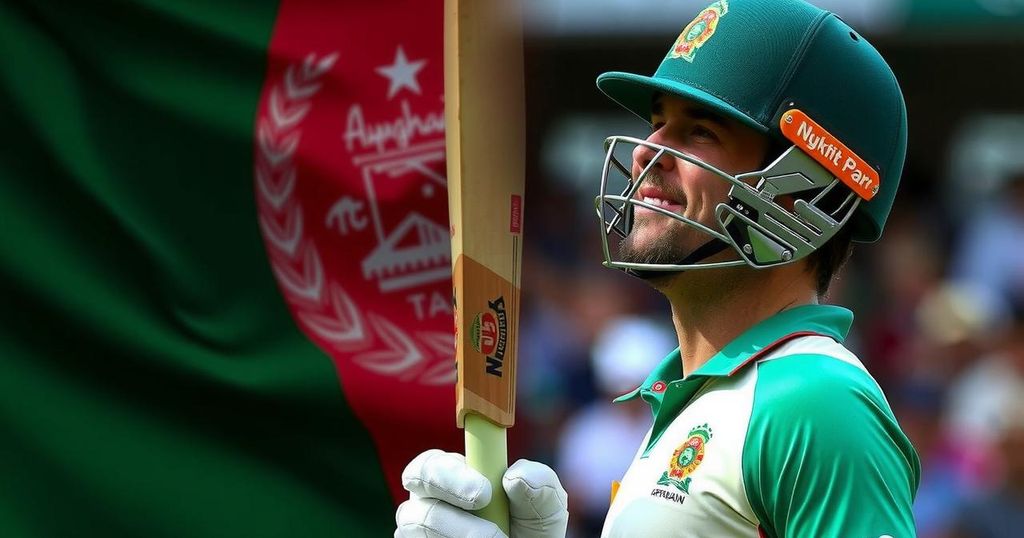Former Northern Ireland First Minister Baroness Foster and over 160 UK parliamentarians advocate for the England cricket team’s boycott against Afghanistan due to the Taliban’s oppression of women. While the ECB emphasizes a coordinated response, it has yet to commit to a boycott as the team prepares for the Champions Trophy match on February 26.
Baroness Foster, the former First Minister of Northern Ireland, has advocated for the England men’s cricket team to boycott their upcoming match against Afghanistan. This plea is shared by more than 160 parliamentarians, including seven from Northern Ireland, in response to the Taliban’s severe oppression of women. In an interview with BBC News NI, Baroness Foster characterized Afghanistan’s regime as a “rogue nation,” particularly criticizing its actions that repress female rights.
Additional support for the boycott has come from various Northern Irish politicians, including MPs from the Social Democratic and Labour Party (SDLP), Democratic Unionist Party (DUP), Alliance Party, and Ulster Unionist Party (UUP). Claire Hanna, an SDLP MP, remarked that the Taliban’s restrictions directly intertwine sports and politics, severely limiting women’s participation in athletics.
The England and Wales Cricket Board (ECB) has suggested a collective approach to addressing issues related to Afghanistan but has yet to formally commit to the boycott. Scheduled to play against Afghanistan in the Champions Trophy on February 26, UK politicians urge the team to use their platform to protest against the violations of women’s rights under Taliban rule. Since the Taliban took control in 2021, Afghan women have faced bans from education, sports, and public life.
The advocacy for a boycott against Afghanistan’s cricket team stems from the broader context of the Taliban’s return to power in Afghanistan, which has led to significant regression in women’s rights. Since August 2021, Afghan women have been systematically denied access to education, employment, and participation in sports, reflecting the oppressive policies of the Taliban. The actions by several UK politicians underscore a growing concern over the need for international bodies and sporting organizations to address human rights issues and the ethical implications of engaging in sports with countries that violate these basic rights.
In summary, the call for the England cricket team’s boycott of the match against Afghanistan is part of a broader initiative by Northern Irish politicians and several MPs to condemn the Taliban’s oppressive regime, particularly regarding the rights of women. While the ECB has acknowledged the importance of addressing these concerns, it has not committed to a definitive action, indicating the complexities of balancing sportsmanship with ethical responsibilities. The push for the boycott illustrates a significant ethical stance taken by various political figures advocating for justice and equality for Afghan women.
Original Source: www.bbc.com






